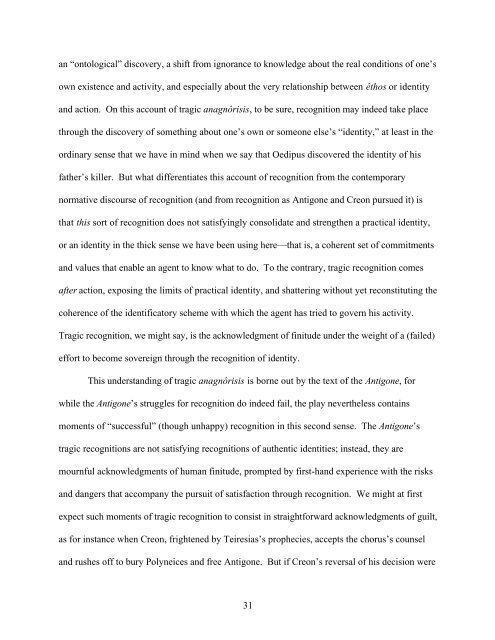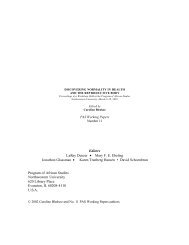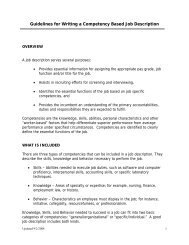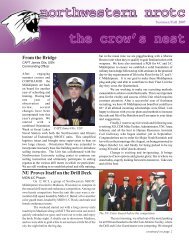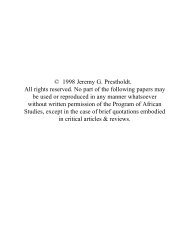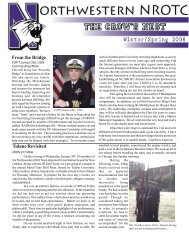TRAGIC RECOGNITION: ACTION AND IDENTITY IN ANTIGONE ...
TRAGIC RECOGNITION: ACTION AND IDENTITY IN ANTIGONE ...
TRAGIC RECOGNITION: ACTION AND IDENTITY IN ANTIGONE ...
You also want an ePaper? Increase the reach of your titles
YUMPU automatically turns print PDFs into web optimized ePapers that Google loves.
an “ontological” discovery, a shift from ignorance to knowledge about the real conditions of one’s<br />
own existence and activity, and especially about the very relationship between êthos or identity<br />
and action. On this account of tragic anagnôrisis, to be sure, recognition may indeed take place<br />
through the discovery of something about one’s own or someone else’s “identity,” at least in the<br />
ordinary sense that we have in mind when we say that Oedipus discovered the identity of his<br />
father’s killer. But what differentiates this account of recognition from the contemporary<br />
normative discourse of recognition (and from recognition as Antigone and Creon pursued it) is<br />
that this sort of recognition does not satisfyingly consolidate and strengthen a practical identity,<br />
or an identity in the thick sense we have been using here—that is, a coherent set of commitments<br />
and values that enable an agent to know what to do. To the contrary, tragic recognition comes<br />
after action, exposing the limits of practical identity, and shattering without yet reconstituting the<br />
coherence of the identificatory scheme with which the agent has tried to govern his activity.<br />
Tragic recognition, we might say, is the acknowledgment of finitude under the weight of a (failed)<br />
effort to become sovereign through the recognition of identity.<br />
This understanding of tragic anagnôrisis is borne out by the text of the Antigone, for<br />
while the Antigone’s struggles for recognition do indeed fail, the play nevertheless contains<br />
moments of “successful” (though unhappy) recognition in this second sense. The Antigone’s<br />
tragic recognitions are not satisfying recognitions of authentic identities; instead, they are<br />
mournful acknowledgments of human finitude, prompted by first-hand experience with the risks<br />
and dangers that accompany the pursuit of satisfaction through recognition. We might at first<br />
expect such moments of tragic recognition to consist in straightforward acknowledgments of guilt,<br />
as for instance when Creon, frightened by Teiresias’s prophecies, accepts the chorus’s counsel<br />
and rushes off to bury Polyneices and free Antigone. But if Creon’s reversal of his decision were<br />
31


